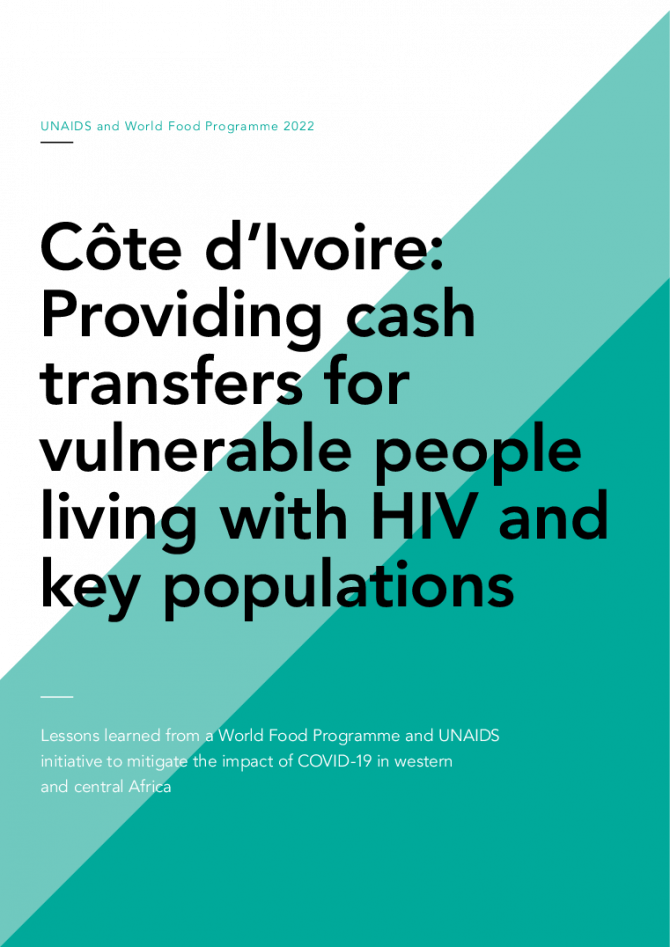Documents
Côte d’Ivoire: Providing cash transfers for vulnerable people living with HIV and key populations — Lessons learned from a World Food Programme and UNAIDS initiative to mitigate the impact of COVID-19 in western and central Africa
08 July 2022
Côte d’Ivoire is Francophone West Africa’s economic hub and is one of the world’s fastest growing economies. However, the country’s rapid socioeconomic development is not inclusive and it has one of the highest gender inequality rates in the world. An estimated 46% of its 25.5 million inhabitants are living in poverty. Food security remains an important challenge, notably for female-headed households. The country also suffers from the triple burden of malnutrition, represented by micronutrient deficiencies, undernutrition and overnutrition, with significant regional disparities.
Related
What the data tell us: Projections for the HIV epidemic in western and central Europe and North America in 2030
28 March 2025
What the data tell us: Projections for the HIV epidemic in the Middle East and North Africa in 2030
28 March 2025
What the data tell us: Projections for the HIV epidemic in eastern Europe and central Asia in 2030
28 March 2025
What the data tell us: Projections for the HIV epidemic in Asia and the Pacific in 2030
28 March 2025
What the data tell us: Projections for the HIV epidemic in western and central Africa in 2030
28 March 2025
What the data tell us: Projections for the HIV epidemic in eastern and southern Africa in 2030
28 March 2025
 Impact of the pause of US foreign assistance in Côte d'Ivoire
Impact of the pause of US foreign assistance in Côte d'Ivoire

19 February 2025


